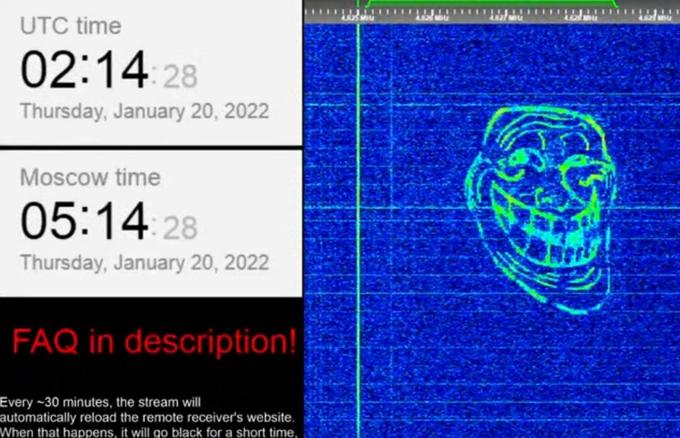The frequency of a suspected Russian military shortwave radio broadcast, known as the “buzzer” for its recognizable repeating channel marker, has become the battleground for rival Russian and Ukrainian radio enthusiasts, who have been attempting to hijack the frequency to play memes and propaganda.
The UBV-76 transmission, which can be listened to at 4625khz on shortwave radio, is suspected to be used by the Russian military for relaying coded messages to military forces. The signal has been transmitted since the late 1970s, during the height of the cold war.
There has been much speculation about the exact purpose of the radio signal, however according to Numbers Station Research and Information Center, the most widely accepted theory is that the transmissions are used to send communications between Russia's Western Military District.
The radio signals originate from the village of Naro-Fominsk, near Moscow. The frequency is allegedly marked by the Russian military with a repeated buzz, which is occasionally interrupted by live coded messages.
With tensions between Russia and Ukraine mounting, enthusiasts noted that the encrypted radio messages were becoming much more frequent.
Since the end of November, listeners reported that encrypted radio messages had become a frequent occurrence. The cryptic messages can be picked up hundreds of miles away using strong antennae.
Following this flurry of military radio activity, enthusiasts decided to take to the airwaves themselves, flooding the frequency with memes, propaganda, and pirated music. Radio enthusiasts, including many users suspected to be based in Ukraine, are using internet-based radio transmitters to blast songs such as Korean viral-hit “Gangnam Style”, MGMT’s “Little Dark Age”, and other hits.
https://twitter.com/mussyu226/status/1482573832443801604?ref_src=twsrc%5Etfw%7Ctwcamp%5Etweetembed%7Ctwterm%5E1482573832443801604%7Ctwgr%5E%7Ctwcon%5Es1_&ref_url=https%3A%2F%2Fwww.vice.com%2Fen%2Farticle%2Fy3vbjj%2Fpirates-spammed-an-infamous-soviet-short-wave-radio-station-with-memes-uvb-76
Modern shortwave radio receivers also allow users to visualise audio transmissions, leading radio enthusiasts to compete to create images, such as Ukrainian symbols or popular memes.
The flood of memes and music means that the original users of the frequency, suspected to be from the Russian military, are now struggling to be heard.
In a Dec. 11 broadcast, live encoded messages were drowned out by Linkin Park’s hit song “In The End.”
In response, Russian listeners began blaring the Soviet national anthem, Russian 90s rock songs, and Russian state propaganda. The frequency is now also being blocked by heavy radio jamming, possibly by the Russian military getting fed up with pirates using their frequency.
A livestream of the broadcast can be viewed on YouTube.













